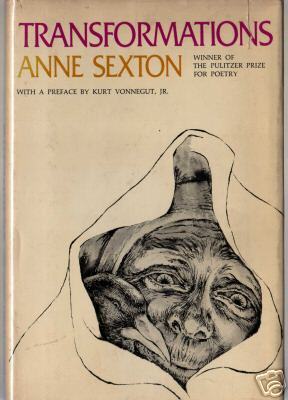What do you think?
Rate this book


Hardcover
First published January 1, 1971
And I. I too.
Quite collected at cocktail parties,
meanwhile in my head
I'm undergoing open-heart surgery.
The heart, poor fellow,
pounding on his little tin drum
with a faint death beat.
The heart, that eyeless beetle,
enormous that Kafka beetle,
running panicked through his maze,
never stopping one foot after the other
one hour after the other
until he gags on an apple
and it's all over.
SNOW WHITE AND THE SEVEN DWARFS
The dwarfs, those little hot dogs,
walked three times around Snow White,
the sleeping virgin. They were wise
and wattled like small czars.
Yes, it’s a good omen,
they said, and will bring us luck.
They stood on tiptoes to watch
Snow White wake up. She told them
about the mirror and the killer-queen
and they asked her to stay and keep house.
RUMPLESTILTSKIN
Inside many of us
Is a small old man
who wants to get out.
No bigger than a two-year-old
whom you’d call lamp chop
yet this one is old and malformed.
His head is okay
but the rest of him wasn’t Sanforized.
He is a monster of despair.
He is all decay.
He speaks up as tiny as an earphone
with Truman’s asexual voice:
I am your dwarf.
I am the enemy within.
I am the boss of your dreams.
No. I am not the law in your mind,
the grandfather of watchfulness.
I am the law of your members,
the kindred of blackness and impulse.
See. Your hand shakes.
It is not palsy or booze.
It is your Doppelganger
trying to get out.
Beware … beware
CINDERELLA
At the wedding ceremony
the two sisters came to curry favo
and the white dove pecked their eyes out.
Two hollow spots were left
like soup spoons.
Cinderella and the prince
lived, they say, happily ever after,
like two dolls in a museum case
never bothered by diapers or dust,
never arguing over the timing of an egg,
never telling the same story twice,
never getting a middle-aged spread,
their darling smiles pasted on for eternity.
Regular Bobbsey Twins.
That story.